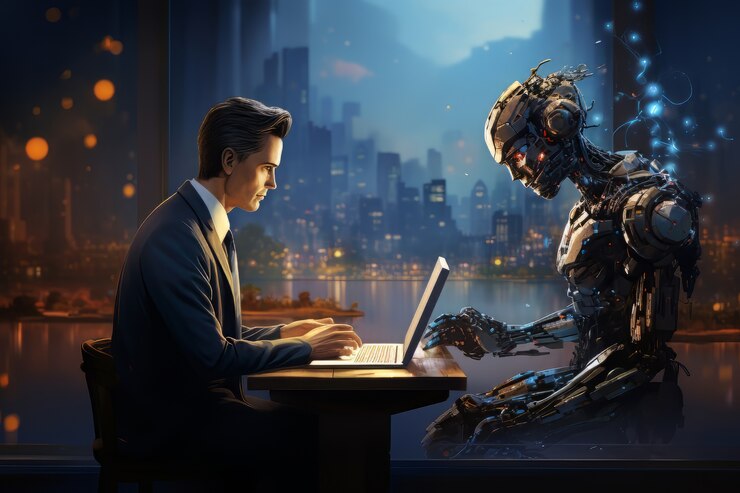AI’s impact on web development is undeniable, with new tools emerging that promise to automate and streamline the process.
Yet, the question remains: Can AI fully replace the creative and problem-solving skills of human developers?
While AI is transforming how websites are built, from code generation to design enhancements, it’s clear that developers will continue to be essential.
In this article, we’ll explore how AI is reshaping the web development industry and why human expertise will remain a critical factor in shaping the future of the web.
How is AI transforming the web development process?
AI is transforming the web development process by automating repetitive tasks like code generation, bug fixing, and testing.
It enhances design with AI-driven UI/UX suggestions and optimizes performance through predictive analytics.
These advancements speed up development, allowing developers to focus on creativity and problem-solving, improving efficiency and innovation.
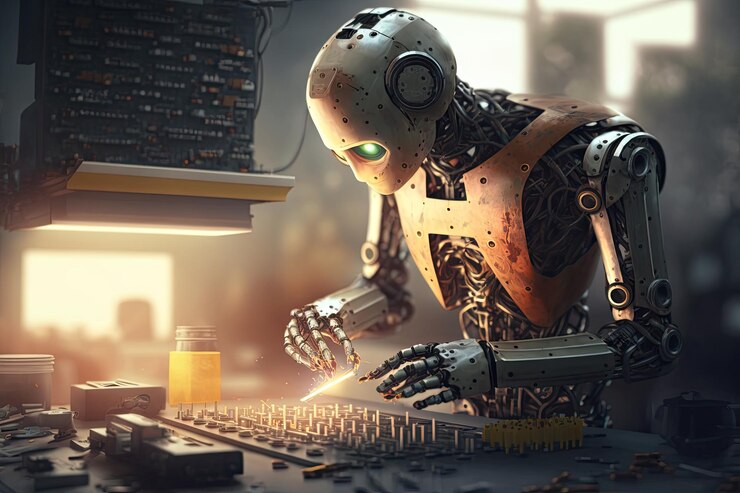
The Current State of AI in Web Development
AI is already reshaping web development, making tasks faster and more efficient.
Developers now use AI as an assistant rather than a replacement while handling complex logics, and problem-solving themselves.
AI-Powered Tools and Technologies
AI-powered tools are transforming web development by automating tasks and improving efficiency.
Code generators like GitHub Copilot and Tabnine help developers write code faster, while no-code platforms like Webflow and Bubble allow users to build websites without deep coding knowledge.
Design tools like Adobe Sensei and Figma AI streamline UI/UX creation, and AI-driven testing tools catch bugs early.
These technologies don’t replace developers but enhance productivity, making web development faster and more accessible to a wider audience.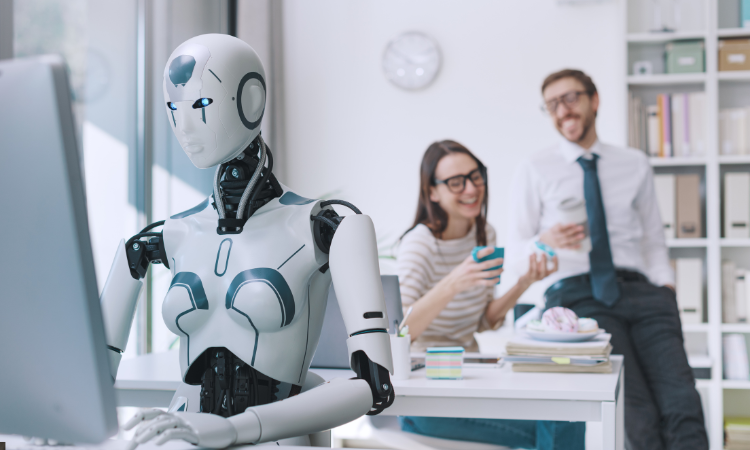
How AI is Changing the Development Workflow?
AI is streamlining web development by automating repetitive tasks and improving efficiency.
It assists with code generation, debugging, and performance optimization, reducing the time developers spend on routine work.
AI-driven design tools help create responsive layouts, while automated testing ensures smoother deployments.
Personalization engines analyze user behavior to enhance UX, and AI-powered SEO tools optimize content for search engines.
Rather than replacing developers, AI acts as an assistant, allowing them to focus on creativity, problem-solving, and innovation.
The Capabilities of AI in Web Development
AI is revolutionizing web development by automating coding, design, and optimization.
Despite these advancements, AI lacks human creativity and strategic thinking, making it a powerful assistant rather than a replacement.
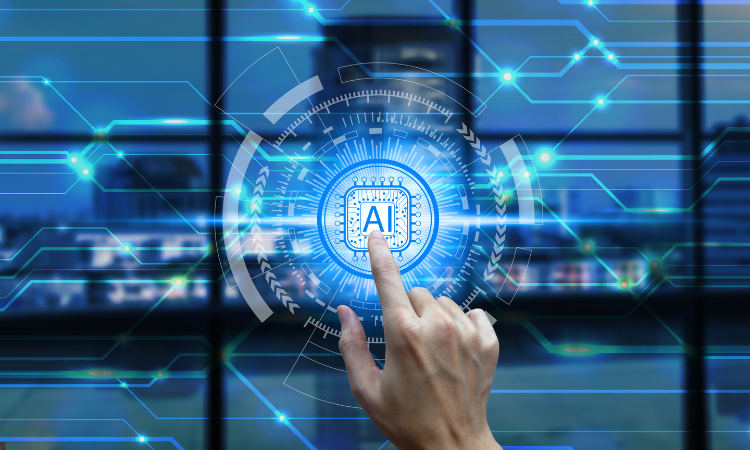
AI for Frontend Development
AI is making frontend development more efficient by assisting with code generation, layout adjustments, and user experience improvements.
It can generate HTML, CSS, and JavaScript snippets, saving developers time on repetitive coding.
AI-powered tools also help create responsive designs, automatically adjusting layouts for different screen sizes.
Additionally, AI analyzes user behavior to suggest UI/UX improvements, making websites more engaging.
While these advancements enhance efficiency, human developers are still needed to ensure creativity, brand consistency, and a seamless user experience.
AI for Backend Development
AI is transforming backend development by automating complex tasks and improving efficiency.
It helps manage databases by optimizing queries, handling indexing, and automating maintenance.
AI also streamlines API integrations, making connections between services smoother.
In server-side scripting, AI can generate and refine codes, reducing development time.
Additionally, it enhances performance and security by analyzing code for inefficiencies and vulnerabilities.
While AI boosts productivity, backend developers are still essential for strategic decision-making, troubleshooting, and handling complex business logic.
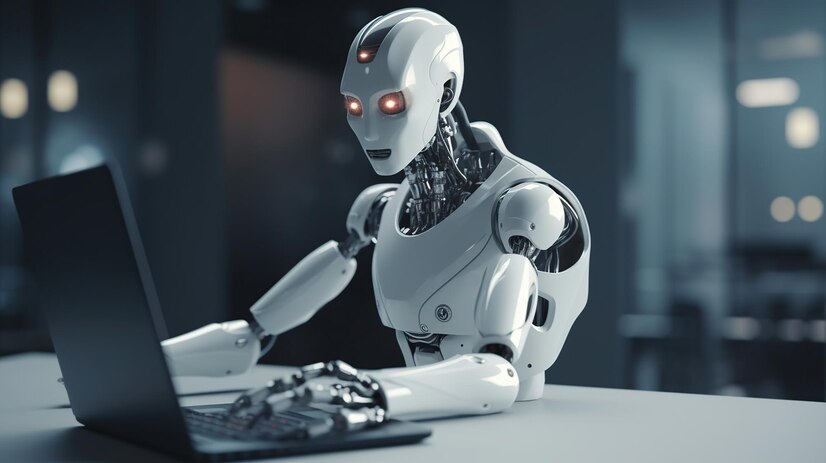
AI in Web Testing and Deployment
AI is revolutionizing web testing and deployment by making the process faster and more reliable.
AI-based automated testing frameworks can quickly identify bugs and errors, reducing the time spent on manual testing.
With AI assistance in continuous integration and deployment (CI/CD), developers can streamline updates and ensure smoother releases.
Additionally, AI-driven security analysis helps detect vulnerabilities and potential threats in real time, strengthening overall site security.
These AI tools enhance efficiency, but human oversight is still crucial for critical decision-making and complex issues.
AI and SEO Optimization
AI is playing a significant role in SEO optimization, making it easier to improve website rankings.
It can generate content and metadata tailored to specific keywords, saving time and enhancing relevance.
AI tools also automate keyword optimization and structure content for better readability and search engine performance.
Additionally, AI provides valuable insights into trends, competitor analysis, and user intent, helping marketers make data-driven decisions.
While AI streamlines SEO tasks, human expertise is still essential for crafting high-quality, engaging content.

The Limitations of AI in Web Development
While AI is revolutionizing web development, it has its limitations. It lacks true creativity and struggles with tasks requiring innovation or complex problem-solving.
Lack of True Creativity and Innovation
AI can’t replicate the true creativity and innovation that humans bring to web development.
While it works by analyzing patterns and existing data, it can’t think outside the box or create original concepts.
Human creativity shines when it comes to branding, storytelling, and designing unique aesthetics that connect with users.
AI might assist with repetitive tasks, but when it comes to crafting memorable and engaging experiences, human input is essential to capture the essence of a brand or message.
Inability to Handle Complex Custom Development
AI struggles when it comes to complex custom development, particularly with unique business logic or unconventional features.
While AI can automate basic tasks, it lacks the flexibility to handle projects that require deep problem-solving and adaptability.
Custom web applications often involve specific client needs that demand creative, tailored solutions, something AI isn’t equipped to fully manage.
Developers’ human skills in understanding complex requirements and thinking outside the box are essential for building unique, functional, and high-quality web applications.
Ethical and Security Concerns
AI in web development raises several ethical and security concerns. AI-generated code can unintentionally introduce security vulnerabilities, making websites more susceptible to attacks.
There’s also the risk of biased algorithms that may affect user experience, potentially creating unfair or unequal outcomes.
Additionally, the increasing reliance on AI raises ethical questions about job displacement, as more tasks traditionally handled by humans could be automated.
Balancing AI’s benefits with these concerns is essential to ensure responsible and ethical use in web development.
Dependence on Human Supervision
AI-generated code, while useful, always requires human supervision for review and refinement.
It may produce functional code, but it often lacks the nuances needed for high-quality, error-free development.
AI also can’t make strategic business decisions or fully understand a client’s specific needs, which are vital for creating tailored solutions.
Human developers are essential in interpreting requirements, solving complex problems, and ensuring the final product aligns with business goals, customer expectations, and industry standards.

The Future of Web Development: AI and Human Collaboration
The future of web development lies in collaboration between AI and human developers.
As AI evolves, developers will play an even more important role in guiding its use, and delivering personalized, high-quality web experiences.
AI as a Development Assistant, Not a Replacement
AI isn’t here to replace developers but to assist them. It takes over repetitive tasks like code generation, bug fixing, and testing, freeing up developers to focus on creativity and problem-solving.
Developers will integrate AI tools into their workflows to boost efficiency and speed up tasks.
This collaboration enhances productivity without sacrificing the human touch needed for unique, innovative, and high-quality web development.
The Evolving Role of Web Developers
As AI takes over more technical tasks, the role of web developers will evolve. Developers will focus more on higher-level strategy, innovation, and consulting, offering solutions tailored to specific business needs.
There will be a growing demand for AI-savvy developers who can effectively guide AI systems, ensuring they adjust with project goals.
These developers will bridge the gap between technology and business, using their expertise to shape AI-driven tools and enhance the overall development process.

Industries Where AI May Have a Bigger Role
AI will play a significant role in industries that rely on standardization and automation.
Small business websites and template-based platforms will benefit from AI tools that streamline design and functionality, making it easier for businesses to create an online presence.
In e-commerce, AI-driven solutions will optimize product recommendations, inventory management, and customer support.
Additionally, AI will automate content and landing page generation, enabling marketers to quickly create optimized, personalized content that improves user engagement and conversion rates.
Industries That Will Still Rely on Human Developers
Certain industries will still rely heavily on human developers due to the complexity and creativity required.
Custom web applications with complex functionality need tailored solutions that AI can’t fully handle.
High-security industries like finance, healthcare, and government require strict oversight, ensuring data protection and compliance something AI alone can’t guarantee.
Additionally, cutting-edge creative web experiences, such as interactive storytelling or artistic websites, demand the originality and vision that only human developers can provide, making their role indispensable in these fields.
Final thoughts: Will Web Development be Replaced by AI Domain?
The future of web development lies in AI and human collaboration rather than replacement.
AI is transforming the industry by automating repetitive tasks and optimizing workflows, but human developers remain essential for complex problem-solving, creativity, and strategic decision-making.
As AI evolves, developers will take on more strategic roles, guiding AI tools to meet specific needs.
Embracing this collaboration will ensure web development remains dynamic, with AI enhancing developers’ skills rather than replacing them entirely.
Why You Should Choose Brandout for Future-Proof Web Development with AI Integration?
As AI continues to revolutionize, Brandout ensures your web development strategy integrates the latest AI technologies.
Leveraging AI in your web development process, Brandout provides innovative web development solutions that improve functionality, speed, and user experience.
Stay ahead of the competition by partnering with Brandout for cutting-edge, future-proof web development.
Frequently Asked Questions:
Is AI a threat to web development?
AI is not a threat but a tool that enhances web development. It automates repetitive tasks, boosting efficiency, while human developers remain essential for creativity, complex problem-solving, and strategic decision-making.
Will web developers be in demand in 2030?
Yes, web developers will still be in demand in 2030, especially those skilled in AI, advanced coding, and creative problem-solving.
While AI tools will assist, human developers will be needed for innovation and customization.
Is there still a future in web development?
Absolutely. Web development will continue to evolve with new technologies, including AI.
Demand for customized web solutions, user experience design, and creative innovation will ensure a strong future for developers.
Which field will be in demand in 2030?
Fields in AI, cybersecurity, data science, software development, and digital marketing are expected to be in high demand in 2030.
Industries that rely on technology and innovation will continue to grow.

